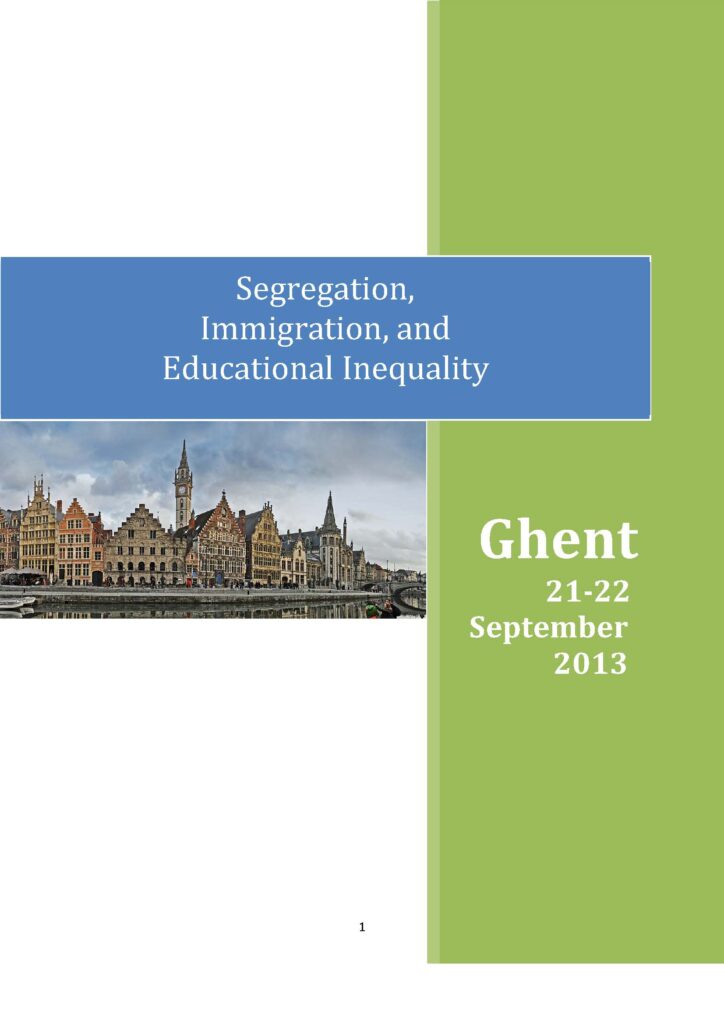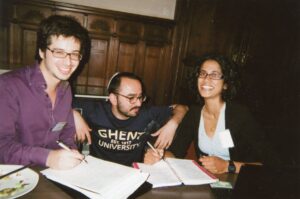RESEARCH CONFERENCE SUMMARY
The Civil Rights Project, Ghent University, Université Libre de Bruxelles and the UCLA Graduate School of Education & Information Studies cosponsored this research conference that took place at Ghent University in Belgium on September 21 and 22, 2013. The event focused on the relationship between immigration and various forms of diversity, segregation, social cleavage and inequality in European and North American schools. This conference brought together new research addressing these themes as well as examine explicitly comparative work using the best available data.
The first day of the conference was open to the public and all interested scholars, as well as policy makers and community group leaders. During the second day of the conference, we brought the commissioned authors (see below) together with a few key experts in an intensive roundtable, to critically discuss each other’s work, explore commonalities, engage in discussions and move the strongest papers into publication.
Ultimately, our goal was to deepen the international discussion and help inform research and policy making within individual societies and international institutions. The immediate goals of the conference were to identify promising scholarly enterprises, stimulate new research through the commissioning of a number of papers, introduce scholars to research that could inform their own work, and introduce the work to a broader, international, audience.
BACKGROUND
All societies have lines of cleavage and inequality and questions about whether schools overcome those differences or merely reflect or even intensify them. These questions are often ignored in relatively homogeneous and stable societies but become much more urgent when societies are aging and not replacing their populations, meaning they must either decline or successfully incorporate new groups who often come from different cultural, ethnic, and linguistic backgrounds. Accelerating migration throughout the world, but especially from less developed nations to Western Europe and North America is resulting in increasingly large communities of immigrants living within the boundaries of developed nations, who with indigenous minority populations, are forming segregated communities of minorities with unequal access to educational opportunity and other societal benefits. The failure to integrate these populations into the mainstream of the dominant society bodes poorly for the social and economic futures of these nations. In some areas this has already become a social crisis characterized by social unrest and declining economic growth. Scholars throughout Europe and North America have studied these problems and policy solutions proposed to address the problems, but there has been very little sharing of this research across national borders. There have been many hundreds of studies in the U.S. on various forms of segregation and their relationships to both opportunity and outcomes in the schools as well as the effects of various forms of intervention to mitigate those inequalities. With vast expansions of immigration in the last generation these issues have become more complex and critically important. We believe it is past time for a fruitful exchange of data, studies and theories with roots in different countries and communities.














